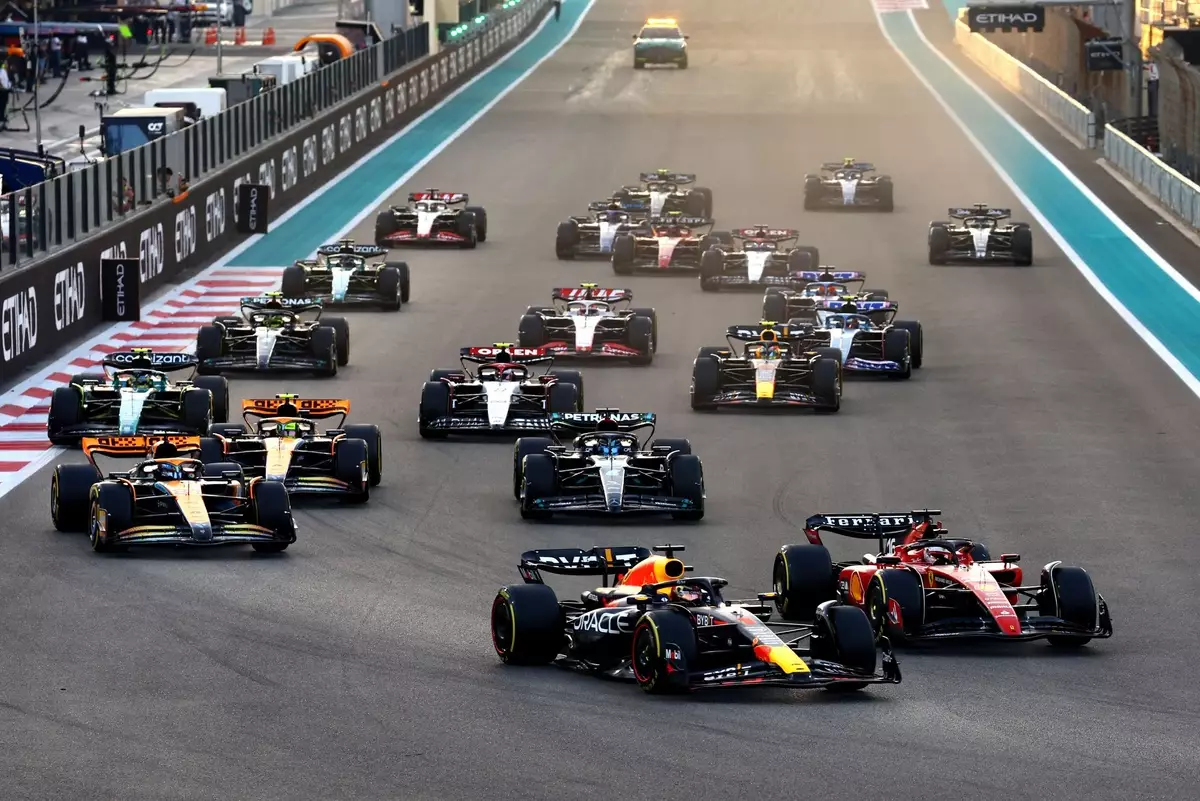In the fast-paced world of Formula 1 (F1), the integration of rookie talent is crucial for the sport’s evolution and sustainability. Recent discussions aimed at introducing a rookie sprint race during the post-season testing in Abu Dhabi have encountered obstacles, leading to a reassessment of the proposal. This initiative, while promising, has been postpone due to logistical complications that underscore the intricacies involved in organizing a F1 event.
The primary intention behind conducting a rookie sprint race is to afford new drivers valuable experience behind the wheel of current F1 cars. F1 stakeholders, including teams and the FIA, expressed their support for this innovative idea, recognizing the dire need for proficient driver preparation as drivers transition from other motorsport series to Formula 1. The plan envisioned a competitive environment where ten rookies would participate in a short qualifying session followed by a sprint race, providing them with a taste of the on-track dynamics in a real racing scenario.
However, the logistical framework required to put this plan into action proved more challenging than anticipated. The F1 Commission convened to discuss the proposal, and it became apparent that the timeframe was insufficient for proper execution. Such challenges fortify the notion that while the idea may hold promise, the realities of Formula 1’s operations require meticulous planning and coordination.
After extensive discussions, the consensus among the F1 Commission members was to postpone the rookie sprint race for the 2024 season. Instead, they agreed to revisit the concept in the future, specifically targeting the 2025 post-season test as a more feasible timeline. This decision highlights the recognition that quality and preparation must not be compromised due to hasty scheduling. The F1 Commission’s statement following the meeting emphasized the commitment to revisit the concept with adequate time to implement a well-structured plan.
The need to re-evaluate the logistical challenges stems not only from the complexity of the racing format but also from the overarching implications for safety and organizational efficiency. Thus, the stakeholders acknowledge that a measured approach will ultimately serve the sport better, both in fostering new talent and in maintaining the integrity of F1 racing.
Amidst discussions about the rookie sprint race, the F1 Commission also addressed the future of technical regulations, specifically for the 2026 season. The adjustments to the aerodynamic performance levels of the cars signify the sport’s commitment to enhancing competitiveness while carefully managing safety considerations. This shift arose from feedback gathered during prior meetings, where teams voiced concerns over initial proposals.
The agreement to increase aerodynamic performance marks a crucial progression in F1’s continuous evolution. It reflects ongoing collaboration between the FIA and teams, ensuring that emerging technologies align with the sport’s traditional values while catering to the demands for improved performance.
In anticipation of the 2026 season, the Commission has also outlined a pre-season testing structure comprising three separate three-day tests. Such preparation time is especially critical for new engine manufacturers like Audi and Red Bull-Ford who are entering the competitive landscape. This initiative aims to level the playing field by allowing teams to acclimate to their new power units, which represents a significant shift in F1’s engine regulations.
The new financial regulations, however, are more than just a reaction to evolving engine technology; they symbolize a fundamental shift towards a more balanced competitive environment in F1. The objective is to strike a harmonious balance between maintaining sporting integrity and ensuring financial viability for teams, effectively addressing concerns over budget disparities.
While the rookie sprint race proposal for 2024 may have been shelved, the ongoing dialogue and collaborative efforts among F1 stakeholders signify a robust commitment to nurturing new talent. Additionally, the enhancement of technical and financial frameworks indicates a proactive approach in steering the future of Formula 1 racing.
As the landscape of motorsport continues to evolve, the importance of fostering fresh talent and maintaining competitive balance will remain paramount. The decisions made today will lay the groundwork for a more sustainable and exciting future, ensuring that Formula 1 maintains its status as the pinnacle of motorsport while continuously adapting to the changing tides of competition.


Leave a Reply